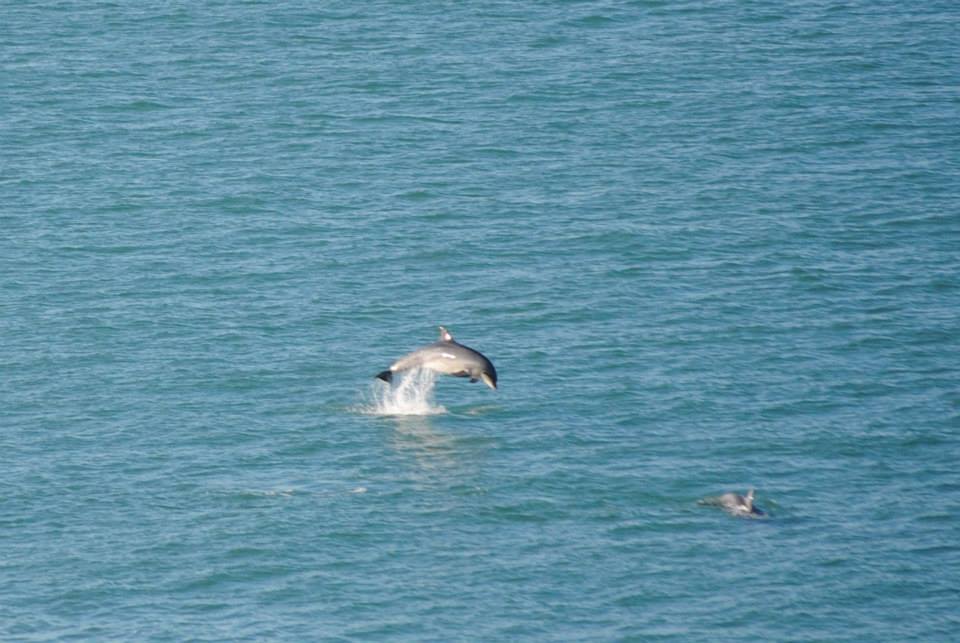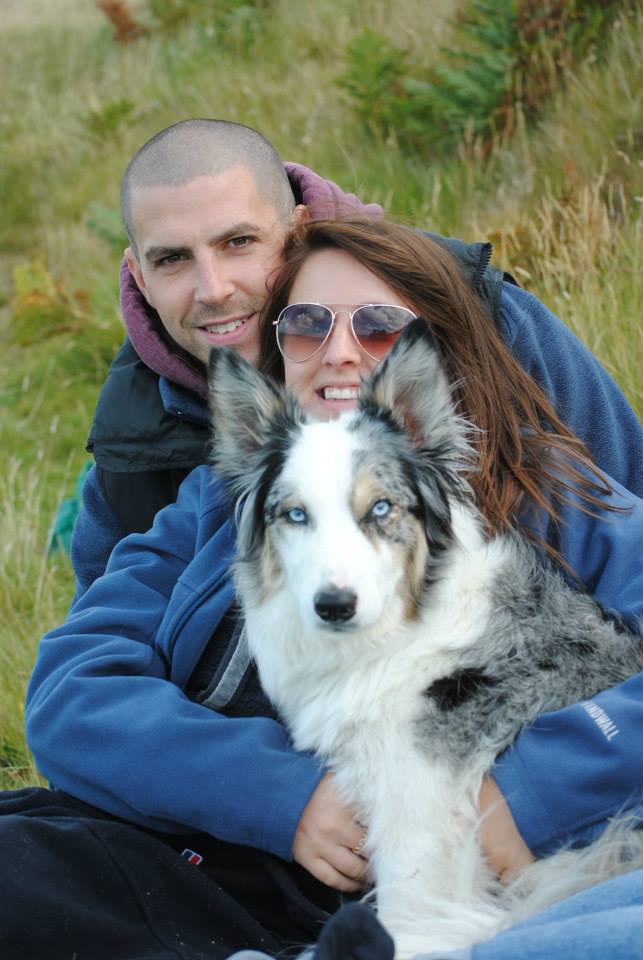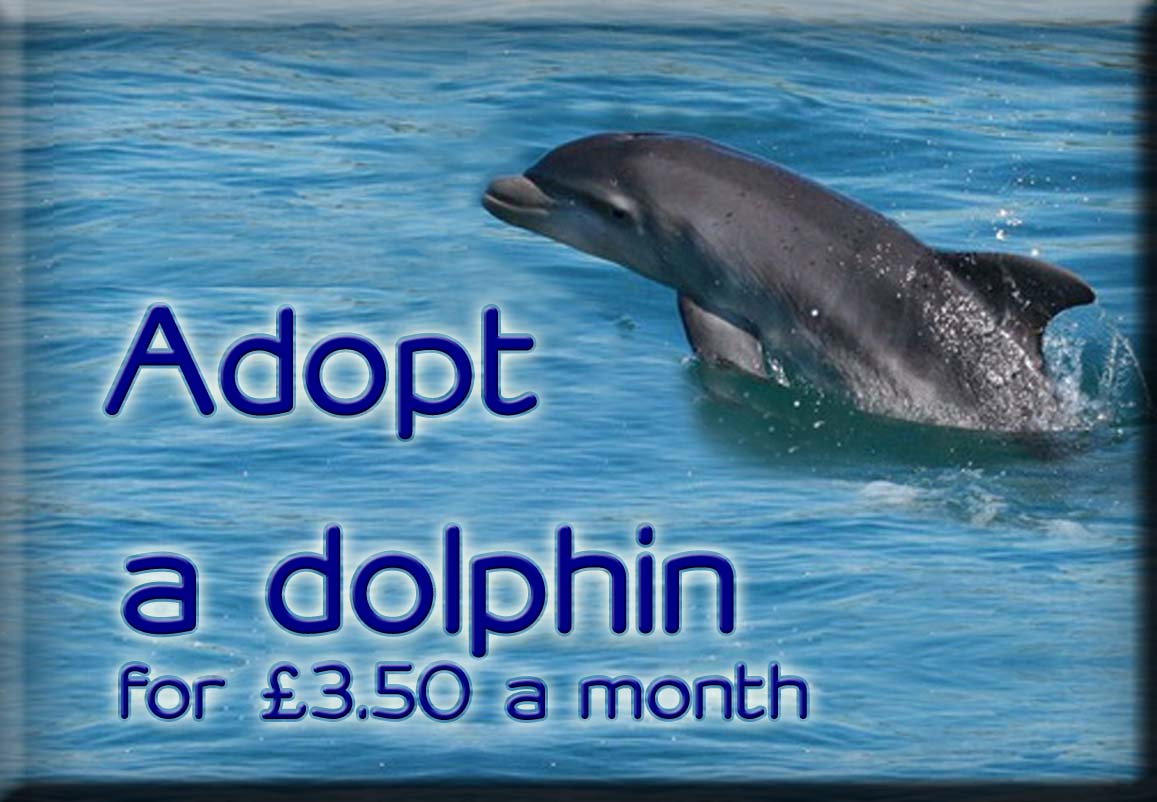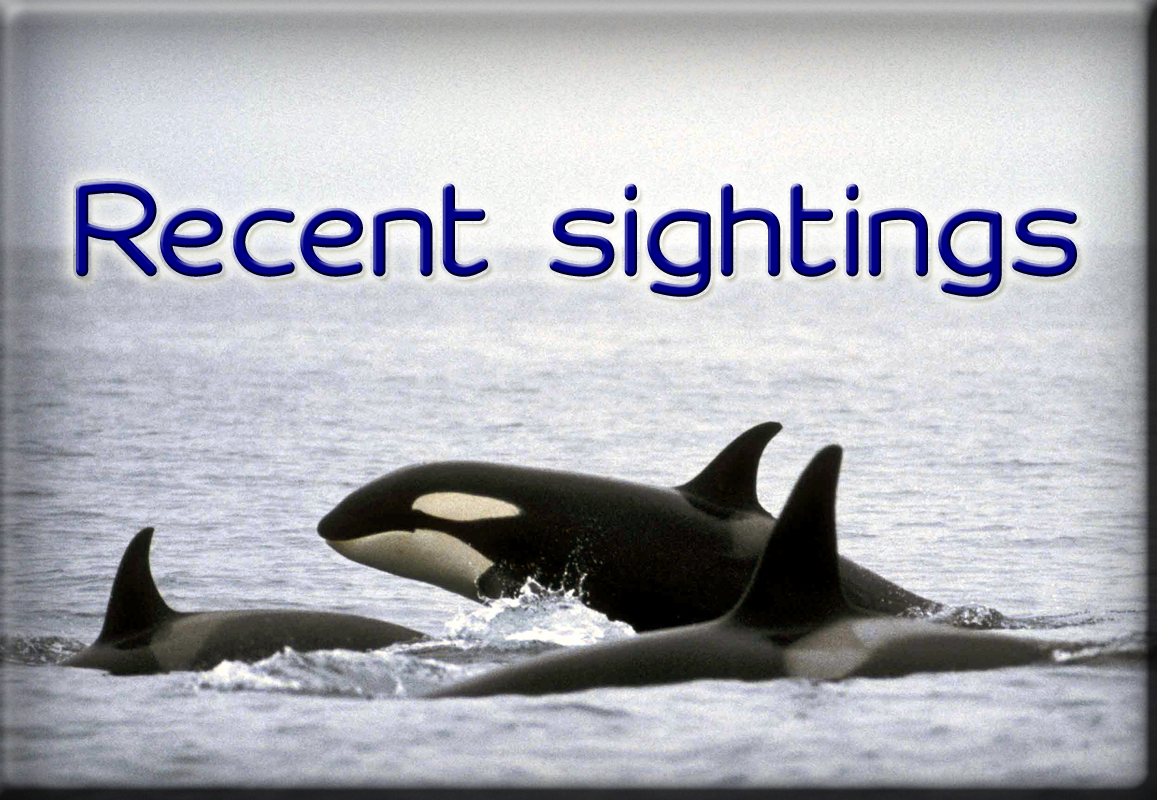We’ve invited our volunteers to write blog posts. Here’s the first offering from Welsh Sea Watcher, Angharad.
Having been obsessed with cetaceans since about the age of 6 and having travelled abroad on numerous occasions to try and see them in the wild, only at the age of 23 did I realise they were right on my door step and could be seen off the coast of Wales!
This has inspired numerous trips down to New Quay, Ceredigion, where they are almost guaranteed to be seen. As long as you have patience, warm clothes and determination you will no doubt be in for a treat! Even the husband is now a fanatic and never hesitates to pop on his walking boots and get out the binoculars!
We would regularly wake up to see dolphins breaching in the morning from our caravan window and have spent several hours on top of the surrounding cliffs surveying remarkable dolphin performances on a daily basis. One day, we were sat for only half an hour when suddenly from every direction dolphins appeared swimming fast and furiously in to the bay. There were so many it was difficult to focus on one specific group. The groups each dispersed to their own feeding area and after about 2 hours of feeding the fun and frolics began. Fish were being thrown left, right and centre and between the jumps, tail slaps and pectoral slaps we even watched a mother and calf playing for almost 2 hours. The separate groups would then join forces and form spectacular territorial displays occasionally whistling at one another whilst appearing fully embroiled in play.
Where there are dolphins there are usually fishing boats in tow. It is always well worth remembering that you are not only there for enjoyment and to relax, but as volunteers we are there to protect the animals that we care so much about. Unfortunately, although there are strict regulations in place to protect cetaceans, these are not always adhered to. Boats must slow down when there are dolphins in the area to at least 6 knots or less. Where dolphins are obviously spotted boats must not be driven directly towards them or over them. It is always worthwhile taking notes of any boats in the area and having a camera handy – if you spot a boat that is potentially breaching the marine code of conduct you can go that extra mile to protect the dolphins by reporting any irresponsible behaviour to the local police or to the Seawatch foundation.
Carrying out Seawatch surveys cost next to nothing and provide hours of fun. When I first started carrying out the surveys I thought I would not last longer than an hour but four hours later I have to be dragged away! Even our dog Alfie is now a fully-fledged Seawatch volunteer! The key is to make sure you have plenty to wear and plenty to eat and drink – food is usually ideal as the minute you take your eyes off the water to start to eat – guaranteed that is when they decide to make an appearance!
If you haven’t tried carrying out a Seawatch survey yet, why not make it your resolution this year to have a go? You’ll be amazed at what you will discover and you’re making a great contribution to the vital research aimed to protect our magnificent coast!
If you’re interested in reading more about our Marine Code of Conduct for boats, please click here. If you would like to join Angharad in becoming a Welsh Sea Watcher please contact our Wales Development Officer: katrin.lohrengel@seawatchfoundation.org.uk. If you live elsewhere in the UK and would like to volunteer please contact our Sightings Officer: kathy.james@seawatchfoundation.org.uk.


























